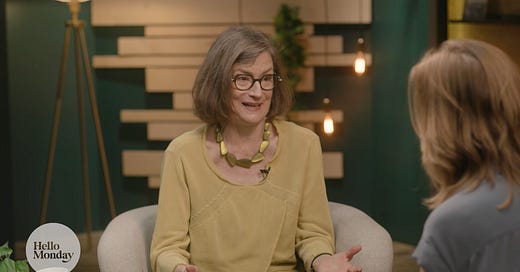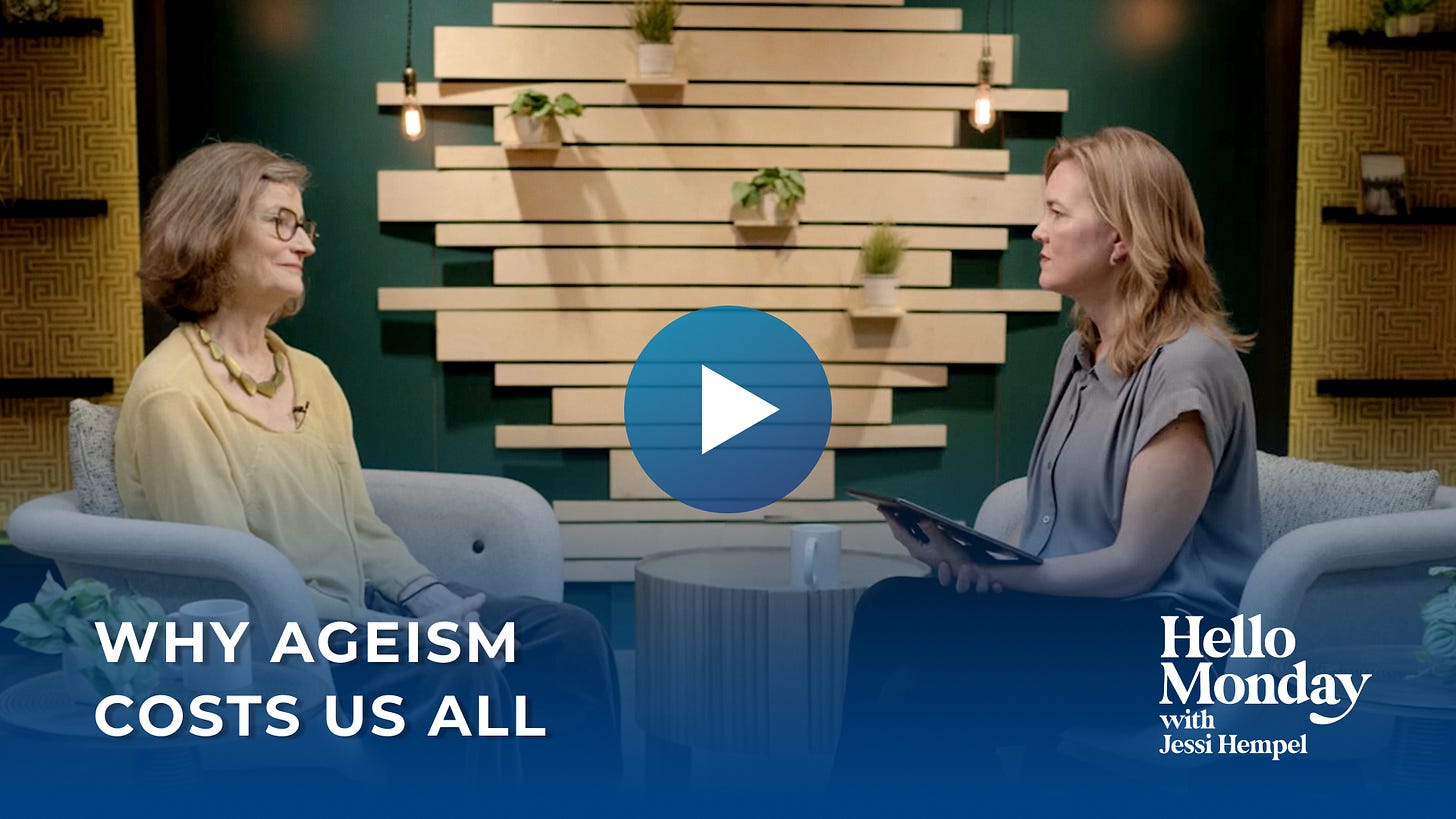When the AARP Letter Lands: Rethinking What It Means to Get Older
At 50, I’m finally seeing how ageism—especially for women—shapes our ambition, self-worth, and visibility. This episode of Hello Monday is a reckoning, and a reframe.
I’m celebrating a birthday this month. Maybe it’s the mailing I got from the AARP on the final day of my 40s. For the first time, I’ve found myself grappling with some unexpected and unwelcome feelings about it. Not because of the number itself, but because of the story I’ve been taught to attach to that number.
As I’ve mentioned this milestone birthday to colleagues at work or parent friends, most respond with something that approximates aghast: Really? I never would have guessed.
Assuming they aren’t just being nice, why wouldn’t they have guessed? And why do I clock an internal lightness when they say this? Why do I appreciate it?
🎧 Check us out on YouTube, Apple Podcasts or Spotify 🎧
For my entire career, I’ve embraced the fact that, to someone who doesn’t know me well, my age has been tricky to pin down. Am I old, or am I young? It’s helped that I’m queer, and thus I’ve evaded some of life’s normal conventions—like marriage at a certain age. I had my children later than many so I struggle with balancing early childhood and job demands alongside the millennials. And I’ve got my mom to thank for this hair of mine that holds on to a dirty blonde; at 74, she still doesn’t really have grays.
Meanwhile, early on, I branded myself as “young” at work. I wrote my first cover stories relatively early in my career, compared to my peers, and always about things that stereotypically, young people would know about:
Now I am 50, and I don’t know how the kids talk. I’m not even *on* TikTok or Yik Yak. More than two decades in to writing about social technology, I understand deeply and much better what makes this technology work, when it works in service of our shared humanity, and what transpires when it really does not. I understand this not because I use all of it, because I’ve watched it with a critical eye. Most important, I understand what I didn’t in my 20s: we can’t really know today how people will use these tools tomorrow, and rather than mapping out their impact with certainty, we must allow for their evolution.
So, I guess it’s time for a personal rebrand. But what’s the angle? “Old” is not anything that anyone around me is aspiring to be. At LinkedIn where I'm employed, the group for older employees is called “Wisdom.” But that hardly feels right. I don’t really like many of the stories we tell ourselves about this era of a life and a career.
“There is no such thing as ‘aging gracefully.’ There’s just aging. And we’re all doing it.”
—Ashton Applewhite, ageism activist and author of This Chair Rocks
They feel disempowering or reactionary. There’s the one that says we become less visible as we grow older. That ambition has an expiration date. That creativity and dynamism are reserved for the young. These messages land especially hard if you’re a woman.
In other words, it’s not the age I struggle with—it’s the narrative.
So I did what I do when I’m struggling with something: I made an episode about it. This week on Hello Monday, I sat down with someone who’s made it her mission to challenge those ideas: Ashton Applewhite.
Ashton is an ageism activist and the author of This Chair Rocks. She’s funny, fierce, and radically hopeful. She believes we need to rewrite the story we tell ourselves—and each other—about what it means to age. And she’s got the research, language, and lived experience to back it up.
Here’s what you’ll learn from our conversation:
Why ageism is one of the last socially acceptable biases—and how it hurts everyone
How internalized ageism creeps into our thinking, and how to spot it
What workplaces (and individuals) can do to embrace age diversity as a strength
Ashton reminded me that getting older isn’t the problem. The problem is the fear we’ve been taught to associate with it. Fear of irrelevance. Fear of invisibility. Fear that the best of life is behind us.
Anyone who has been to TED, or who happened to catch her CBS Sunday Morning spot with Jane Fonda, can tell you: Ashton is a role model in every way. This conversation left me feeling lighter. More defiant. More hopeful. I think it will for you too.
With gratitude,
Jessi







